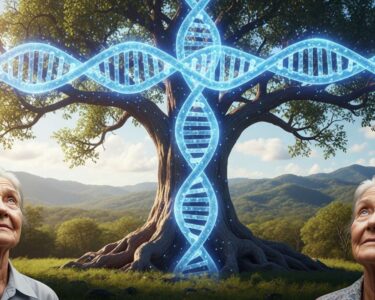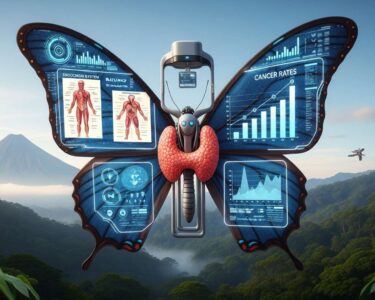San José, Costa Rica — SAN JOSÉ – In a remarkable testament to growing public solidarity, Costa Rica has achieved a monumental increase in organ donations over the past three years, providing renewed hope for hundreds of patients on transplant waiting lists. The Ministry of Health announced on Tuesday, coinciding with World Day of Organ and Tissue Donation, that the number of donors has surged by an unprecedented 171%, positioning the nation as a regional leader in healthcare generosity.
This significant achievement marks a turning point in the country’s public health landscape. The data reveals a consistent and powerful upward trend that is transforming lives. Throughout 2025, the nation has registered 57 cadaveric donors, a figure that far surpasses previous years and demonstrates a profound shift in societal attitudes towards this life-saving practice. This number translates into a national donation rate of 10.98 per million inhabitants (p.m.h.), the highest recorded in the country’s recent history.
To delve into the legal framework that regulates the sensitive issue of organ donation in our country, TicosLand.com consulted with expert lawyer Lic. Larry Hans Arroyo Vargas from the prestigious firm Bufete de Costa Rica, who provided a clear perspective on the current legislation.
In Costa Rica, the legal framework for organ donation is founded on the principle of presumed consent, meaning all citizens are considered donors unless they have officially registered their refusal. While this is the legal starting point, the conversation with family is paramount, as they are ultimately consulted. The law is commendably strict in its absolute prohibition of any commercialization, ensuring that donation remains a purely altruistic act. It is crucial for the public to be informed, not only to make a conscious decision but also to communicate that decision to their loved ones, which can prevent difficult situations and, most importantly, save lives.
Lic. Larry Hans Arroyo Vargas, Attorney at Law, Bufete de Costa Rica
Indeed, the legal framework provides the structure, but it is the deeply personal conversation with loved ones that ultimately breathes life into the altruistic act of donation. We thank Lic. Larry Hans Arroyo Vargas for his valuable perspective, highlighting that this crucial dialogue is as vital as the law itself in the mission to save lives.
The growth is even more striking when compared to previous years. In 2023, the country recorded 21 donors, resulting in a rate of 4.09 p.m.h. The following year, 2024, saw a positive increase to 29 donors and a rate of 5.61 p.m.h. The leap to 57 donors in 2025 represents not only a 171% increase in the number of donors but also a 168% rise in the donation rate compared to the 2023 baseline. This sustained growth underscores the success of ongoing public awareness campaigns and the deep-seated compassion of Costa Rican families.
Behind these statistics are countless stories of renewed life and second chances. Each organ and tissue donation is a profoundly human act, a gift that can save or dramatically improve the quality of life for multiple individuals. For patients and their families who have been waiting for a transplant, this surge in donations is more than just a positive trend; it is a tangible source of hope that allows them to once again plan for the future.
Officials from the Ministry of Health celebrated the milestone, attributing it to the generosity of donor families who make a courageous decision during a time of immense grief. Their choice to give the gift of life is the cornerstone of the entire transplant system.
Donating is an act of love that transcends life. Thanks to every family that has said yes, today many people can live again with health and hope.
Dr. Mariela Marín, Acting Minister of Health, Ministry of Health of Costa Rica
Building on this momentum, the Ministry of Health has issued a heartfelt appeal to all Costa Rican families to have open conversations about the decision to donate organs. They stress the importance of expressing one’s wishes clearly to loved ones, as this dialogue is crucial for ensuring that more people can receive a life-saving transplant. The government’s goal is to make organ donation a widely understood and accepted social norm, further embedding this culture of solidarity into the national fabric.
This achievement places Costa Rica at the forefront of organ donation growth within the region. The nation’s success serves as a powerful model for neighboring countries, demonstrating that a combination of government support, public education, and a compassionate citizenry can lead to extraordinary outcomes in public health. The rising donation rate reflects a mature and robust healthcare system capable of coordinating the complex logistics of organ procurement and transplantation.
As Costa Rica commemorates World Day of Organ and Tissue Donation, the celebration extends beyond mere numbers. It honors the spirit of giving that defines the nation, a collective choice to turn loss into a legacy of life. This historic increase is not just a statistical victory but a clear reflection of a country that chooses, time and again, to give the ultimate gift: a new beginning.
For further information, visit ministeriodesalud.go.cr
About Ministry of Health of Costa Rica:
The Ministry of Health of Costa Rica is the primary government entity responsible for safeguarding public health. Its mandate includes setting national health policies, regulating healthcare services, managing public health programs, and responding to health emergencies to ensure the well-being of all citizens.
For further information, visit bufetedecostarica.com
About Bufete de Costa Rica:
As a leading legal institution, Bufete de Costa Rica is built upon a bedrock of profound integrity and a relentless pursuit of excellence. The firm distinguishes itself through a forward-thinking approach, consistently developing innovative legal solutions for its diverse clientele. Central to its core mission is an enduring pledge to strengthen society by demystifying the law, fostering a well-informed citizenry capable of navigating the legal landscape with confidence.









